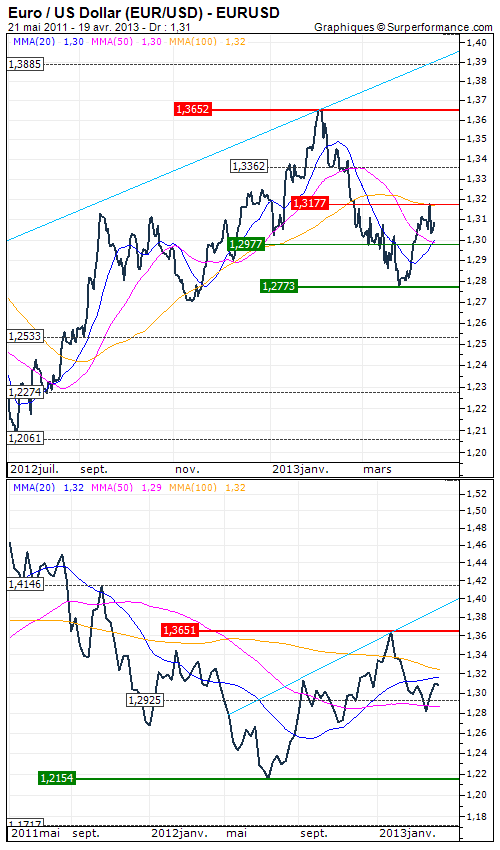Euro / US Dollar (EUR/USD) : New period of turbulence
By Mathieu Burbau
The fall of China's GDP to 7.7% on year in the first quarter, against 8% expected by economists, has renewed risk aversion. The dollar has benefited from its safe haven status earlier this week while the Euro fell back in the wake of global stock markets and commodity markets.
Stronger than expected decline of consumer prices in the United States reinforces the Federal Reserve in its ultra-accommodative policy and allows the Euro to remain above USD 1.30 despite the statements of one of the ECB members council in the Wall Street Journal. Jens Weidmann, Bundesbank president, has warned that the ECB may soon decide on a new decrease of its minimum bid rate if the economy of the Eurozone continued to grow weaker.
If this news is confirmed, it would provide a good entry point for buyers while a two-day meeting of finance ministers of the G20 is taking place. Taro Aso and Haruhiko Kuroda could justify BoJ’s policy, widely criticized, especially by the U.S. Treasury, prompting investors to pursue arbitration in favor of the Old Continent, more attractive in terms of yield.
Graphically, after collecting our profits at USD 1.3154, prices decline in contact with 1.3024 gives us the opportunity to initiate a new long position in the direction of the medium-term trend, as illustrated by a new crossing of the 50-day moving average by the 20-day average. Our target is set at USD 1.3177.





